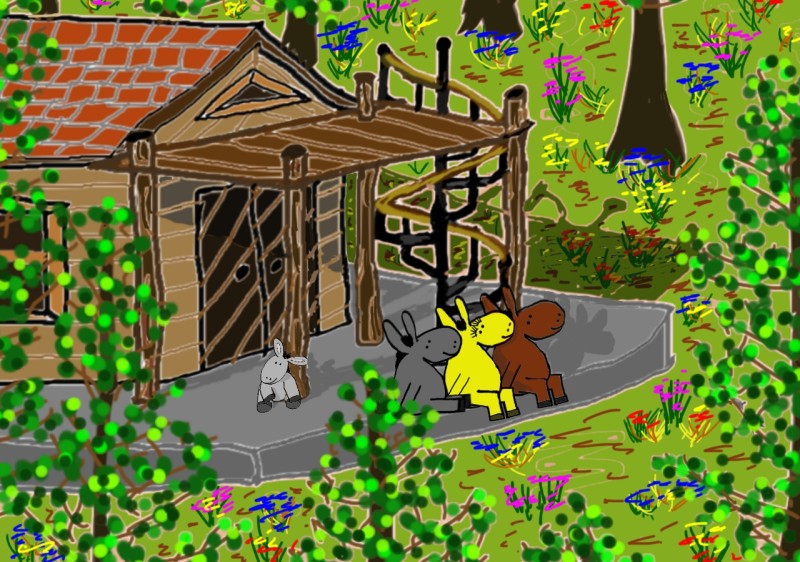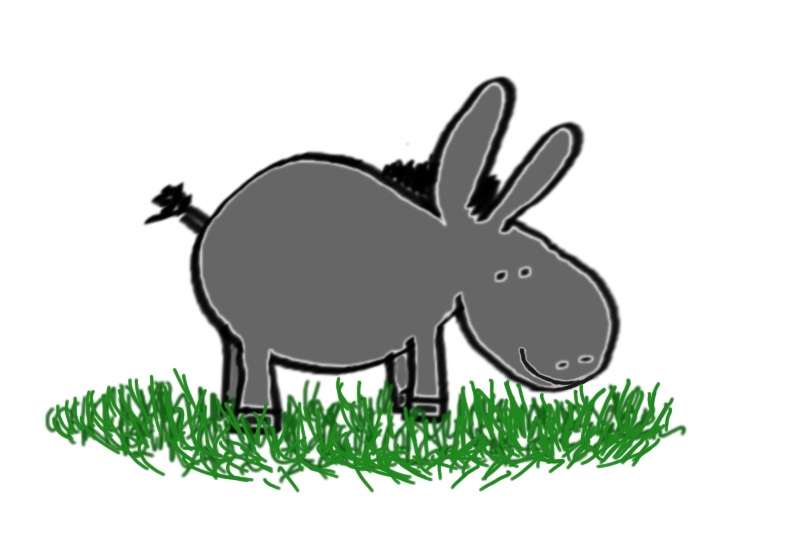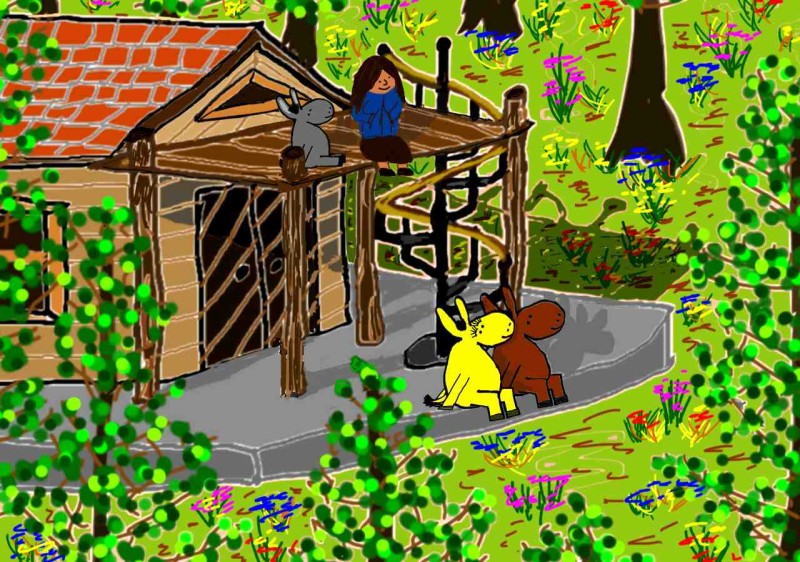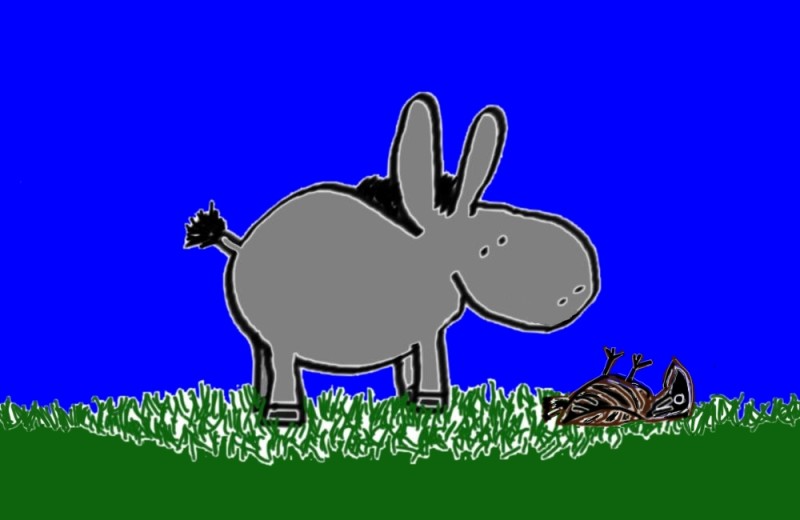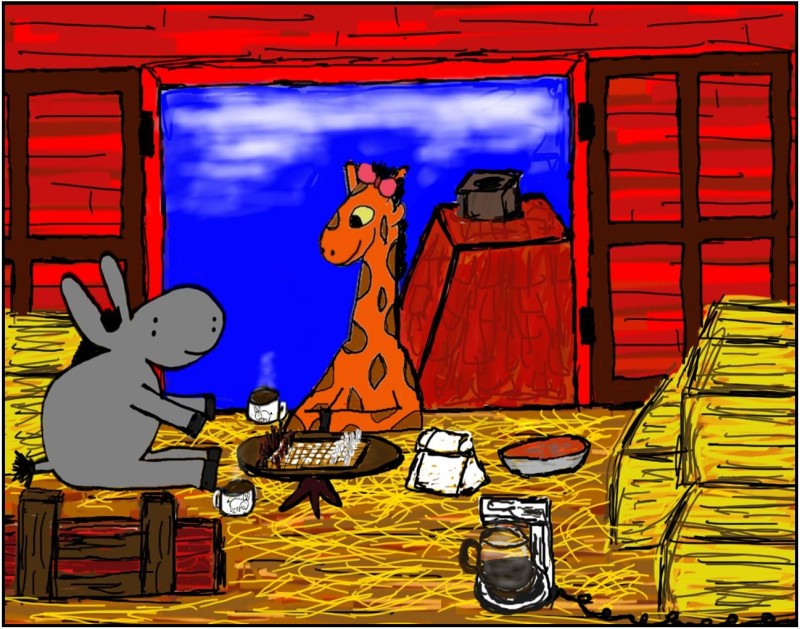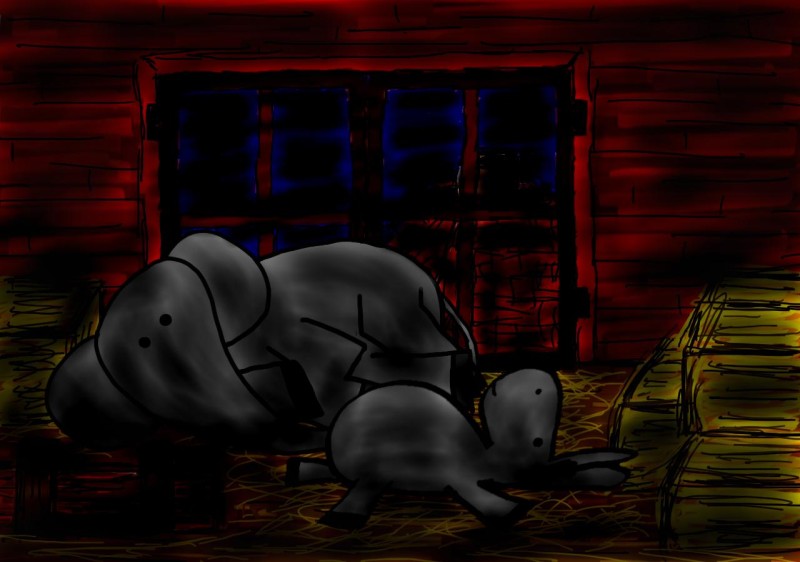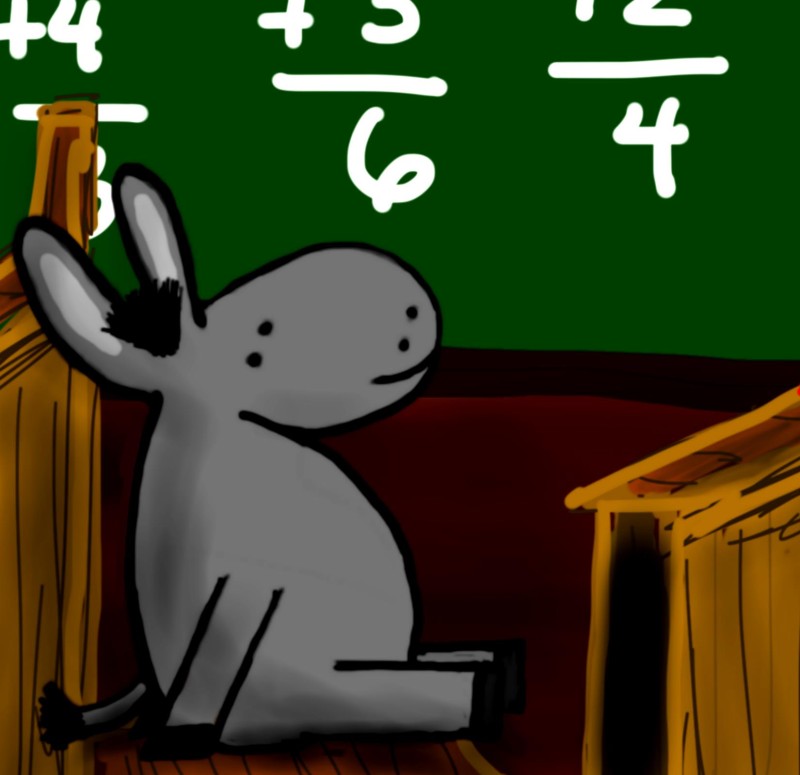The chickadees are in full throat today, said Blurtso. No, said Pablo, those are blackbirds you hear. Really? said Blurtso. Well… how about that one… now that was a chickadee! No, said Pablo, that was a kingfisher. Really, said Blurtso, a kingfisher? Wow… it sure sounded like a chickadee… hold it… hold it…how about that one… now that was a chickadee! No, said Pablo, that was a red-tailed hawk. A red-tailed hawk? said Blurtso. Hmm, he must have been imitating a chickadee… hold it… hold it… how about that one! That was the most unmistakable chickadee I’ve ever heard! No, said Pablo, that was a duck. Remarkable, said Blurtso. What about that, was that a kingfisher? No, said Pablo. A blackbird? No, said Pablo. A red-tailed hawk? No, said Pablo. A duck? No, said Pablo. A chickadee? No, said Pablo. I give up, said Blurtso, what was it? That, said Pablo, was my stomach growling.
“Blurtso pays it forward”
“Blurtso considers the elimination of humans”
Why do humans, said Blurtso, interfere with nature? Humans, said Pablo, are creatures of nature, and as creatures of nature they inevitably act naturally, so their conscious interference in nature must be working in the interests of nature, even if that interference turns out to be nature’s way of eliminating humans.
“Blurtso listens to the birds” (I)
The birds are nice, said Blurtso, they sound very happy. Yes, said Bonny, Pablo can identify all of them by their songs. Really, said Blurtso, what was that one? That was a chickadee, said Pablo. And that one? said Blurtso. That was another chickadee. How about that one? said Blurtso. That was the same chickadee you heard the first time, said Pablo. Wow, said Blurtso, that’s amazing.
“Ditto goes to school” (XXIII)
I like your house, said Virginia. Thank you, said Ditto. How is the intervention class? I love it, said Ditto, we’re reading a book by James Clavell. James Clavell? said Virginia. Yes, said Ditto, and Ms. Johnson asks all kinds of interesting questions, and she lets me answer any way I choose. Really? said Virginia. Really, said Ditto. It’s not like our regular class? said Virginia. No, said Ditto, we talk about whatever the story brings to mind. That’s great, said Virginia. Yes it is, said Ditto, you should try to get in. To intervention? said Virginia. Yes, said Ditto. How? said Virginia. What was your Benchmark score? said Ditto. I was a yellow light, said Virginia. Maybe if you failed your weekly tests, said Ditto, you could become a red light. Do you think? said Virginia. I don’t know, said Ditto, it’s worth a try.
“Blurtso finds a dead bird”
“Blurtso plays chess”
“Blurtso hears a whisper” (XIV)
“Ditto goes to school” (XXII)
I spoke to the schoolmarm, said Ms. Johnson, about your difficulty with the Benchmark. What did she say? said Ditto. She said that it doesn’t matter why you failed the test, you’ll have to remain in intervention until the next test at the end of May. That’s fine with me, said Ditto. Good, said Ms. Johnson, I thought we might do a “read aloud.” I brought a book called, The Children’s Story, by a writer named James Clavell. James Clavell? said Ditto, the author of Shogun? Yes, said Ms. Johnson, have you seen the movie? No, said Ditto, but I read the novel.
“Ditto goes to school” (XXI)
Hello, said Ms. Johnson, I’m Ms. Johnson. Hello, said Ditto, I’m Ditto. Nice to meet you, Ditto. Nice to meet you, Ms. Johnson. I understand, said Ms. Johnson, that you had some trouble with the Dibels test. Yes, said Ditto, the words didn’t make any sense. Didn’t the schoolmarm explain, said Ms. Johnson, that the words were make-believe words? Yes, said Ditto, but even make-believe words have meaning. I don’t understand, said Ms. Johnson. Aren’t all words, said Ditto, make-believe words? All words? said Ms. Johnson. Yes, said Ditto, the word “tree” has no ontological relationship to the thing we call a tree. We might invent any word and make believe it refers to a tree. In fact, that’s what we’ve done since the beginning of language—the word for tree is different in every language that exists—all the different words are simply make-believe words that we’ve agreed upon to refer to trees.
You’re exactly right, said Ms. Johnson. And if someone is asked to read a group of make-believe words, said Ditto, how do they know that the words don’t have make-believe pronunciations? They don’t know, said Ms. Johnson, because the group of make-believe words might constitute a make-believe language, with its own grammar, syntax, and pronunciation. Exactly, said Ditto, that’s why I had trouble with the test. Would it have helped, said Ms. Johnson, if the schoolmarm had said the words were “meaningless”? Meaningless? said Ditto. How could they be called meaningless if they’ve determined where I have to spend my lunch hour? Yes, said Ms. Johnson, the two of us are going to get along very, very well.
